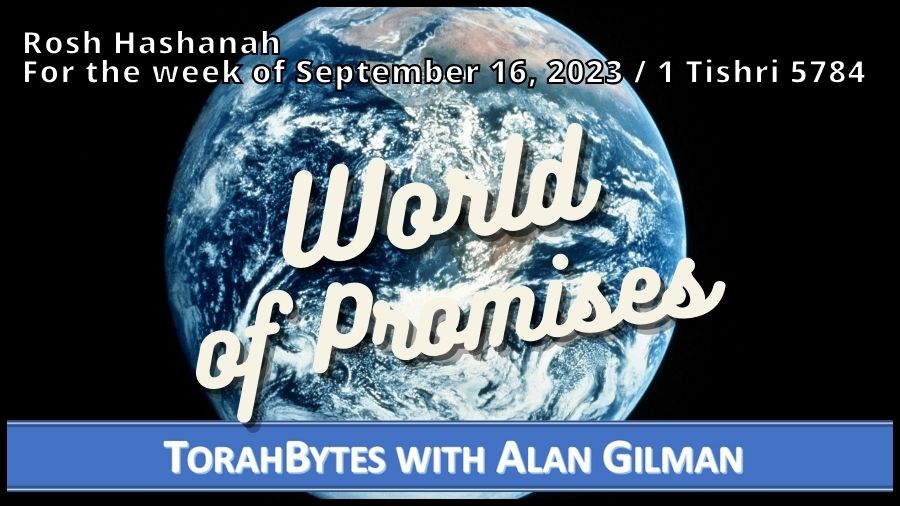For the week of September16, 2023 / 1 Tishri 5784

Rosh Hashanah
Torah: Bereshit/Genesis 21:1-34; B’midbar/Numbers 29:1-6
Haftarah: 1 Shmuel/Samuel 1:1 – 2:10
The LORD visited Sarah as he had said, and the LORD did to Sarah as he had promised. And Sarah conceived and bore Abraham a son in his old age at the time of which God had spoken to him. (Bereshit/Genesis 12:1-2)
This week’s Torah reading is special for Rosh Hashanah, the New Year, which is derived from the biblical Feast of the Blowing of the Shofar (see Vayikra/Leviticus 23:23-25). The Torah reading begins with the wonderous birth of Isaac in fulfilment of God’s promise to Abraham and Sarah.
Has it ever occurred to you that we live in a world of promises? Most of the time we are not aware how promises are pillars of human interaction. Promises make up so much of our lives. As I am writing this, it’s with an understanding that the computer I am using is going to work promised, be it the hardware or the software. And that’s just the beginning. Since my plan is to share this with the world via the extremely complex system known as the Internet, there are innumerable pieces of technology and human involvement committed to perform as promised. I am depending on those promises. I depend on the promises my fellow drivers make when they get their drivers’ licenses to not purposely harm me. I expect that businesses will be true to their word when I purchase their products. If I buy a carton of milk, I expect the promised milk to be in the carton. So many promises do we take for granted!
Most employment and work contracts contain all sorts of promises made by all parties involved. I promise to do a particular type and quality of work for a certain number of hours. You promise to pay me a certain amount of money to be given to me at set time intervals.
We depend on the promises given to us via travel and event schedules. You couldn’t plan a trip, be it locally or internationally, if buses, trains, and planes would only be available when travel companies might feel like it.
I am guessing that while you have been reading or listening to this, you have thought about the great number of broken promises you have endured in your life: companies that didn’t deliver the goods, undependable employees, the show you were looking forward to cancelling last minute, buses that don’t show up, and so on. The reason why this is so irksome is because we are promise oriented beings. We expect promises and we expect them to be kept.
We live in a promise-oriented world because it was created by a promise-oriented God. Promise is embedded in the very system of life. Even more than our dependance on the promises we make to each other, we depend on the systems of life, subconsciously most of the time. We don’t worry that gravity or buoyancy will not come through for us. That’s because the God of promise designed, implemented, and oversees these systems. Even people who believe that the universe is the result of random impersonal chance, relate to life as if it is designed in the dependable way I just described.
They do so until they want otherwise. More and more people are attempting to deny the innate dependability of God’s creation. It doesn’t matter to them that men and women are created a certain way, for example. It doesn’t seem to matter to that treating ourselves or others contrary to design will inevitably end in disaster. Desire, not design, is paramount.
It’s no wonder that along with rejecting the way the promise-oriented God made the world, more and more have human promises become less and less reliable. We still promise but do so in order to manipulate others not commit ourselves to promised outcomes. Politicians have been doing that for a long time. Perhaps we have all become political now, treating our word like it’s nothing.
This is not new, of course. When Messiah came into the world, he said: “Let what you say be simply ‘Yes’ or ‘No’; anything more than this comes from evil” (Matthew 5:37). Being true to our word should be normal. We are to be promise-oriented people because we have been made in the image of a promise-oriented God.
Scriptures taken from the English Standard Version